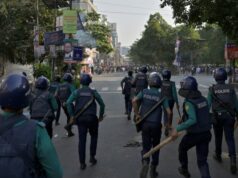As the United Nations marks its 80th anniversary, Ambassador Asoke Mukerji , India’s former Permanent Representative to the U.N., believes the world body stands at a critical juncture. “If countries cannot survive without international cooperation, then we need the United Nations,” he says. “But for the U.N. to remain relevant, it must reform itself to reflect today’s realities.”
Mukerji argues that the U.N.’s credibility hinges on both relevance and effectiveness. While the organisation was founded on a negotiated charter binding member states to act collectively, it has increasingly been treated like informal groups such as the G20 or BRICS. “Those are not bound by treaty obligations,” he notes. “The U.N. is.”
One of the chronic challenges, Mukerji stresses, is the veto power in the Security Council — a relic of 1945 that today undermines collective action. “When the Charter was negotiated, 30 of 50 countries opposed the veto,” he recalls. “It was accepted only on the assurance that the five permanent members would act with great power responsibility. That principle has completely collapsed.” The result: paralysis on conflicts from Syria to Afghanistan, where “decisions are blocked by national interests rather than global ones.”
On terrorism, Mukerji points to the U.N.’s failure to develop a comprehensive legal framework despite decades of debate. “The Security Council has politicised the issue,” he says, citing examples like the mainstreaming of the Taliban in Afghanistan, Al Qaeda in Syria and the inability to name perpetrators of attacks such as the one on Pahalgam. “This is how the U.N. has made itself irrelevant.”
He also dismisses the notion that financial constraints explain the U.N.’s weakness. “Its annual budget of $3.72 billion is modest in global terms,” he says. “The real problem is that major contributors like the United States are in arrears. But that cannot distract from the larger question of why the U.N. exists.”
Mukerji agrees that the Global South is under-represented where it matters most—within the veto-bearing Security Council. “Two-thirds of the General Assembly are developing countries, but none of them hold veto power,” he observes. “Most conflicts on the Council’s agenda are in the Global South, yet their voices remain unheard.”
For Mukerji, reform must go far beyond the Security Council. He calls for invoking Article 109 of the U.N. Charter, which provides for a “General Conference” to review and amend the charter itself. “It only requires 97 of 193 countries in the General Assembly and 7 of 15 in the Security Council,” he explains. “There’s no veto at this stage. It’s the easiest first step.”
Outdated references such as “enemy states”, the obsolete Trusteeship Council, and the absence of any mention of the digital domain, he says, all highlight how antiquated the charter has become. “We cannot continue with business as usual and think nothing will change,” Mukerji warns. “Two billion people are affected by war, conflict, and displacement. It’s time to act.”
He believes India is well placed to lead this initiative. “Having long championed reformed multilateralism, India and the Global South can drive this process,” he concludes. “In diplomacy, once you begin negotiations, anything is possible. It depends on the quality of the negotiators.
Also watch: Why UN Reforms Are Critical for India
In a career spanning three decades and counting, Ramananda (Ram to his friends) has been the foreign editor of The Telegraph, Outlook Magazine and the New Indian Express. He helped set up rediff.com’s editorial operations in San Jose and New York, helmed sify.com, and was the founder editor of India.com.
His work has featured in national and international publications like the Al Jazeera Centre for Studies, Global Times and Ashahi Shimbun. But his one constant over all these years, he says, has been the attempt to understand rising India’s place in the world.
He can rustle up a mean salad, his oil-less pepper chicken is to die for, and all it takes is some beer and rhythm and blues to rock his soul.
Talk to him about foreign and strategic affairs, media, South Asia, China, and of course India.




